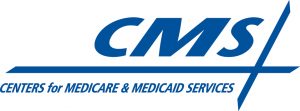Business transactions are a common cause of litigation for healthcare businesses are without the support and protection of a healthcare law firm.
Without the correct business structures, best practices, policies, and procedures, a healthcare law firm can ensure that your healthcare business is protected from regulation violations, malpractice issues, and more. This can begin with organizing different business transactions that are required for different parts of the practice.
Why Separate Business Transactions in a Healthcare Business?
Declining to implement different business structures as appropriate for different types of transactions made in the business is a common problem.
A common business transaction for a healthcare business is the payment for supplies and services that are related to the business. How to handle creditors, is completely different from how a healthcare business might pay for marketing services as there are different circumstances and rules regulating those transactions.
With creating protocols for how to handle creditor payments, it’s important to emphasize the rights and limitations of creditors as well as identify the responsible party or parties for payment in the business. This is vital if there are doctors or owners coming in and out of the business, and creditors are paid over months or years.
What Are Other Examples of Business Transactions in Healthcare Businesses?
It’s important to implement protocols as healthcare businesses handle a number of transactions throughout the day. If there is a disruption to one part of the business, a separation of transactions will allow for the continued flow and function of another facet of the business while the disruption is addressed.
Other examples of business transactions in healthcare businesses include:
- Importance of day-to-day front desk operations.
- Supervision of ongoing client projects, patients, or customer care.
- Management of back-end business practice.
- Monitoring compliance with state, federal, and local regulations.
- Organization of marketing and advertising needs.
- Troubleshooting and maintenance of software, machinery, and IT issues.
If you’re needing to organize business transactions, contact Florida Healthcare Law firm, and we’ll help create and implement a protocol.



 By:
By: 


 By:
By: 
 By:
By:  By:
By: 


